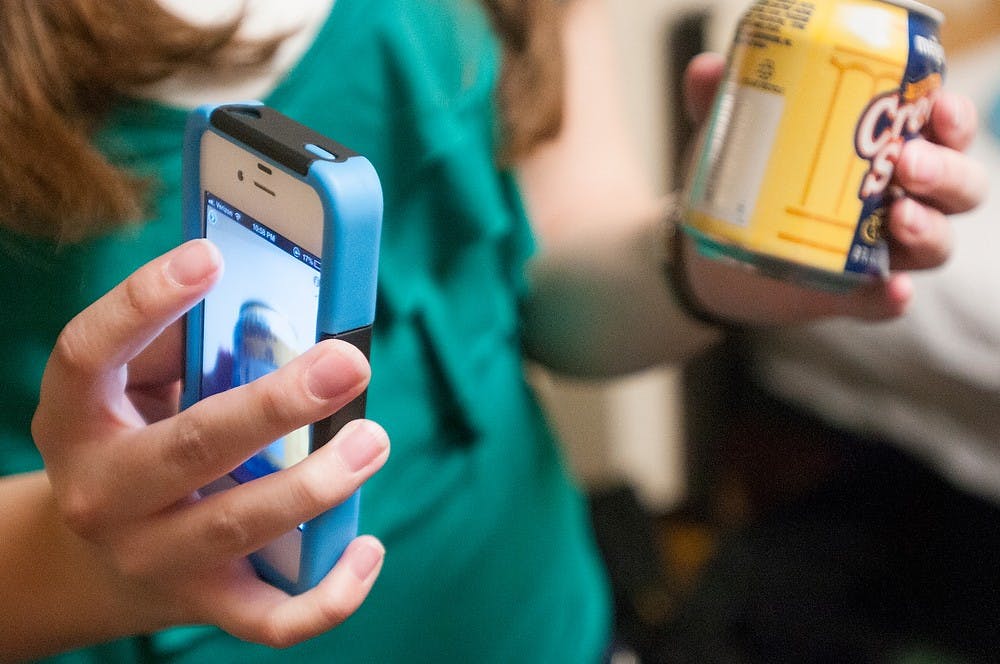Computer science sophomore Jordyn Castor has been fighting for everything she has since she was born.
Fifteen weeks premature at 1 pound, 9 ounces, she was born blind because of an oxygen build up behind her eyes. She considers herself blessed.

Computer science sophomore Jordyn Castor uses an app on her cell phone to read a pop can in her dorm room in Case Hall on Monday, April 15, 2013. Many different apps are accessible and can read bills, food brands, and perform many other functions. Danyelle Morrow/The State News
—Computer science sophomore Jordyn Castor has been fighting for everything she has since she was born.
Fifteen weeks premature at 1 pound, 9 ounces, she was born blind because of an oxygen build up behind her eyes. She considers herself blessed.
“You have to be okay with it, you have to accept it,” Castor said. “You can either move on with your life and figure out different ways to do the things you want and to adapt and to pursue your career and your goals and your dreams and all that, or you can be sad about it and do nothing. … Obviously I’m not that way.”
The first in her immediate family to go to college, Castor said she never has allowed her blindness to hold her back from her dreams and aspirations, including pursuing a career in computer science to further the accessibility of different computer and web-based programs.
This is a goal she’s had since second grade after realizing that different programs, such as Microsoft Excel, had flaws in their accessibility programming.
Rock climbing, downhill skiing and running track are a few of her passions and interests she has pursued throughout the years.
From creating anatomic models accessible to blind students in India, to serving as president of the Michigan Association of Blind Students, Castor said she’s glad to be able to personally create something to help others.
But her main goal is to inspire others to believe in themselves, to instill the idea “there is no shame in having a disability, there is nothing wrong with going to ask for help,” if it’s needed, she said.
By telling her story, she hopes it “inspires other people to overcome their challenges.”
For Castor, changing someone’s life for the better or inspiring another student the way her mother or grandfather have inspired her will make the struggles and challenges she’s faced in life worth it.
Support student media! Please consider donating to The State News and help fund the future of journalism.